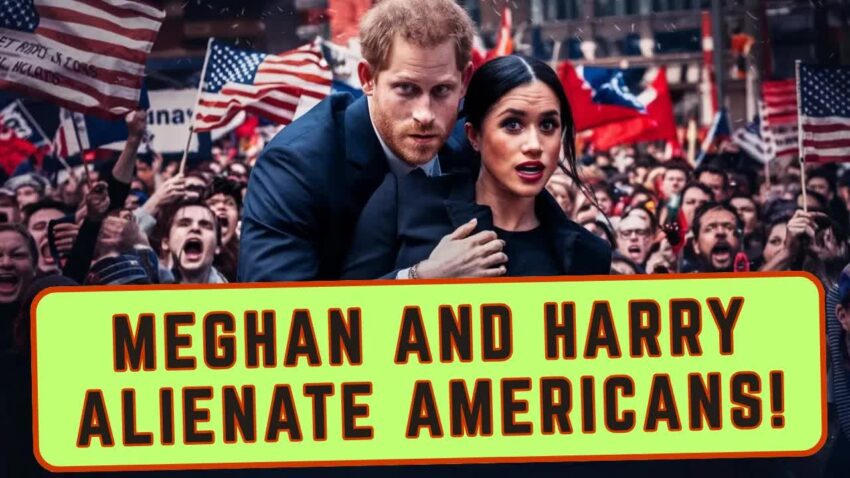Since their dramatic exit from the British Royal Family and subsequent move to California, Prince Harry and Meghan Markle have ignited a firestorm of opinions across the United States.
Niall Gardner, director of the Margaret Thatcher Center for Freedom at the Heritage Foundation, recently shared insights about the couple’s reception in America during an interview with GB News.
His comments reveal a complex landscape of admiration for the monarchy juxtaposed with skepticism towards the Sussexes.
The couple, who famously tied the knot in a stunning ceremony at Windsor Castle in 2018, made headlines when they stepped back from royal duties in January 2020.
Their relocation to Meghan’s native California marked a pivotal moment in their lives, aimed at achieving independence while focusing on various personal and philanthropic endeavors.
With the birth of their daughter, Princess Lilibet, in June 2021, the family appeared to be carving out a new path away from royal expectations.
However, the reception they have received in the U.S. has been anything but welcoming.
Gardner described the American perspective as one that largely admires the British Royal Family, particularly the late Queen Elizabeth II, whose legacy resonates deeply with many.
This respect for the monarchy, he argues, has not translated to support for Harry and Meghan, especially given their vocal criticisms of royal life.
One of the most impactful moments in this saga was the couple’s explosive interview with Oprah Winfrey in March 2021.
During this televised event, Meghan made several shocking revelations, including claims about tensions with her sister-in-law, Princess Kate, and allegations regarding concerns over their son Archie’s skin color.
These disclosures sent shockwaves through the media and public alike, igniting fierce debates on both sides of the Atlantic.
Following the Oprah interview, the couple continued to dominate headlines with projects like their multi-part Netflix documentary and Harry’s memoir, “Spare.”
While these endeavors were intended to provide insight into their experiences within the royal family, Gardner suggests they may have backfired, leading to perceptions of the Sussexes as self-centered individuals focused on airing grievances rather than fostering goodwill.
Public opinion on Harry and Meghan remains sharply divided.
Some Americans empathize with their struggles and commend their advocacy for mental health and racial equality.
Yet, others view their ongoing disputes as distasteful, believing that such personal matters should remain private.
This dichotomy is reflected in the responses of high-profile commentators, with some praising the couple’s transparency while others criticize their fixation on past grievances.
Moreover, their Netflix series offered an intimate look at their life in California, but its reception was mixed.
Critics argued it reinforced the narrative of a couple more concerned with their image than with genuine engagement in charitable work.
Similarly, Harry’s memoir provided a candid glimpse into his life, yet its personal revelations led many to question the appropriateness of sharing such intimate family matters publicly.
As time progresses, the rift between Harry and his family appears to widen.
The couple’s absence from significant royal events, including King Charles III’s coronation, has only fueled speculation about their strained relationships, especially with Harry’s brother, Prince William.
Gardner’s observations come at a critical juncture for the Sussexes, who are navigating a challenging media landscape in America.
Despite initial excitement surrounding their departure from royal duties and the lucrative media deals that followed, the couple’s recent projects have not garnered the expected acclaim.
Gardner’s commentary highlights the complexity of their relationship with the American public, which straddles admiration for the monarchy and skepticism toward Harry and Meghan’s motives.
As the Duke and Duchess of Sussex continue to chart their own course, the question remains: will they reconcile with the British royal family or maintain their distance?
For now, the couple finds themselves in a precarious position, trying to balance their identities as public figures with the expectations and sentiments of an audience that holds the British monarchy in high regard.
In the end, the future of Prince Harry and Meghan Markle in America hangs in the balance.
As they navigate this intricate landscape of public opinion, only time will reveal whether their efforts will resonate positively or continue to evoke mixed reactions.
